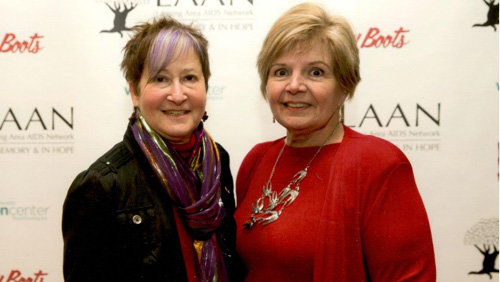
If it were up to the Rev. Sharon Ketchum, we all would embrace one another — a sentiment that is easy to agree with but difficult to practice in a divisive election season.
“To put up and tolerate is one thing,” she said. “To be actively inclusive is different.” As the not-so-conventional minister of the recently-created Unity Spiritual Center of Lansing, Ketchum dismissed other churches' “focus on original sin,” stressing that “we are each an original blessing.”
For about 37 years, Unity of Greater Lansing reinforced those kind of positive beliefs. Founded in 1968, the church operated from 240 Marshall St. for several years before moving to a location at 15851 S. Old U.S. 27 in north Lansing. In 2004, an associate minister left the church to found Unity Spiritual Renaissance, a similarly-minded church at 230 S. Holmes St., just south of Sparrow Hospital.
But the unity-minded churches were destined to be reunited. In 2014, Unity Spiritual Renaissance was looking for a way forward after the death of its founding minister, the Rev. Kate DeMougin. About the same time, Unity of Greater Lansing’s minister, the Rev. Kent Lederer, retired. As both congregations considered their future, the idea of a merger seemed like a way to bring stability to both groups. A long process of compromise and consolidation was initiated in the fall of 2015 and finalized in March, resulting in the Unity Spiritual Center of Lansing. After an extensive search and a string of guest speakers, Ketchum, 68, became its minister in July.
A native of Johnson City, N.Y., Ketchum earned an associate’s degree in radio, TV, and film production from Stephens College in Missouri. After college, she traveled the U.S. and Canada as an advance publicist for “Disney on Parade,” worked for an artist’s publicist in Toronto, wrote for CBC and then spent 10 years in California as a production assistant for ABC and NBC.
“I loved working on ‘The Pearl Bailey Show’ at the Hollywood Palace,” Ketchum recalled. “I got to meet legends — Lucille Ball, Jimmy Durante, Steve and Eydie, Sarah Vaughan, Liberace, Moms Mabley, Ella Fitzgerald, Louis Armstrong.”
After additional classes at California State University at Los Angeles, her next career involved sales and marketing of uniforms. That gig was not always enough to support her son and daughter, so Ketchum took on another job.
“I loved delivering pizza in order to pay for day care so I could be a sales manager,” she said.
Uniform sales took her to L.A., Dallas, and Canada, where she went back to school at the University of Toronto. She studied psychology and religion and began taking classes through the Unity Village in Missouri, officially entering the ministry in 1997 and being ordained in 1999. Before her Lansing post, Ketchum was senior minister of Unity Kitchener in Ontario.
Kitchener describes her Lansing congregation, which meets at the Holmes Street church, as “more diverse than it was in Kitchener,” noting that Unity Spiritual Center of Lansing’s attendees include “gay people, diverse races and mixed race couples.” Ketchum lives near the church with her fiancée, Maxine Thome.
“I’ve never lived in a capital city,” Ketchum said. “When I see the Capitol Building, it still takes my breath away.”
A lover of the arts and music, Ketchum looks for spiritual messages in secular culture.
“There isn’t a love song that couldn’t be a religious song,” Ketchum insisted. “Every love song could be a song about our love affair with the infinite.”
She even finds spiritual undertones in AMC’s “The Walking Dead.”
“I love looking for metaphysical references,” Ketchum said. “The thing that amazes me in this show is that even in a survival mode, people create definitions for ‘others.’ We seem to continually be making ‘thems.’”
Ketchum’s wide-ranging sermons can also bring in aspects of sports, fairy tales or animal totems. But her driving mission, making this world a more accepting place, remains constant. Ketchum quotes from the Bible, but doesn’t take it literally. She sees heaven and hell, for example, not as eternal destinations but as metaphors for our current situation.
“We have it here on Earth,” she said. “Most of us have tasted it. Heaven and Hell are states of consciousness.”
Support City Pulse - Donate Today!
Comments
No comments on this item Please log in to comment by clicking here